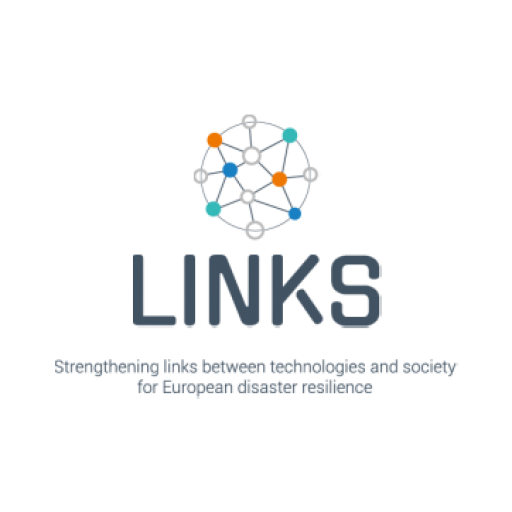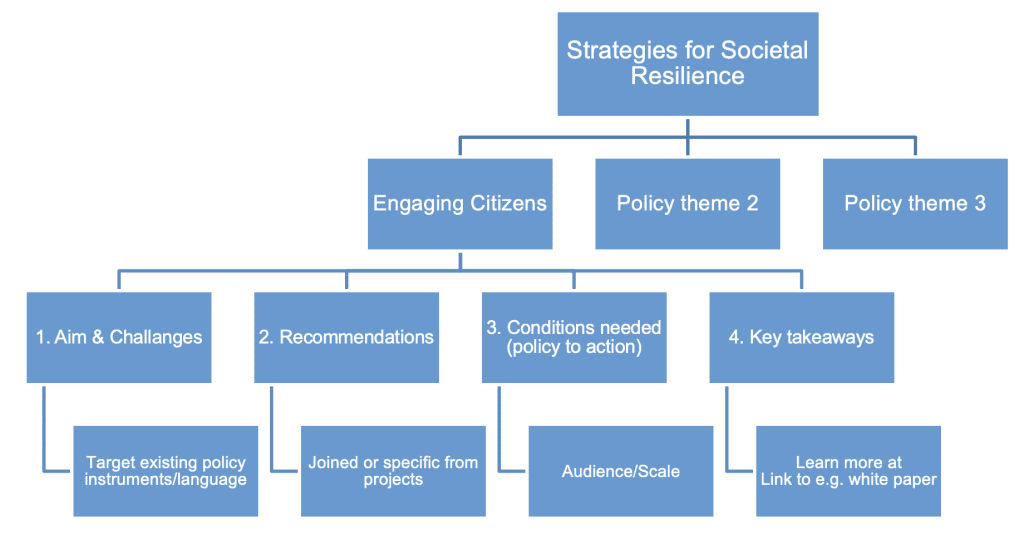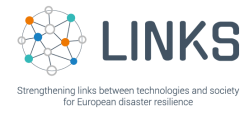
As we near the end of the LINKS project, we have found it useful to translate some of the project’s results and outcomes into recommendations for decision makers working at different levels. The recommendations stem largely from the findings that emerged under Work Packages 2 and 3, which examined social and institutional aspects of applying social media and crowdsourcing in disaster risk management (DRM).
The first brief focuses on the need for integrating targeted communication strategies by organizations working in DRM. In disasters, communities are often considered homogenous. However, in order for communication to be truly effective and inclusive, it must be done with considerations for the different needs and capacities of diverse groups and individuals within a community. This brief provides recommendations for those working at strategy levels within disaster management organizations, and highlights ways to identify these diverse needs within the community for targeting their communication, which can lead to increased citizen engagement, strengthening the organizations credibility, and more efficient use of resources.
The second brief builds from the first, and dives deeper into issues of accessibility to information shared through social media and other digital mediums, based on the diverse needs and makeup of communities, including vulnerable groups. The aim of the brief is to provide recommendations at operational, strategic and policy levels on ways of addressing accessibility at different levels. This includes looking at aspects related to cultural, physical and sensory, material, and relief accessibilities, for fostering more inclusive uses of social media in disaster risk management.
Finally, with support from the Horizon Booster Service, the projects under the Societal Resilience Cluster (SRC) have established a policy working group to aligned joined policy outputs among the projects. The first meeting of the working group took place in Toulouse in May 2023 alongside the Community for European Research and Innovation for Security (CERIS) Forum on Risk Governance & Societal Resilience. At the meeting the projects reviewed each other’s existing policy outputs and identified shared policy themes across the projects. A follow-up meeting was held Amsterdam in September 2023, where the projects outlined a draft structure (figure 1) for future joined policy briefs among the SRC projects, under the shared heading of Strategies for Strengthening Societal Resilience to Disasters.

It was also decided at the meeting that the first joined brief will focus on the shared themes of engagement with citizens and communication processes in DRM for increasing risk awareness and preparedness. The document will provide evidence-based policy suggestions for strengthening an all-of-society approach to disaster resilience, highlighting issues around trust, knowledge sharing, participation, and collaboration in disaster risk reductions and risk management processes, as well as issues relating to the credibility, reliability, validity of information, and the accessibility to information and technologies. The policy brief is scheduled to be published and circulated by the cluster in late 2023, and will feed into a session on project research-to-policy experiences at the CERIS Annual Disaster Resilient Societies event on 5 December.

